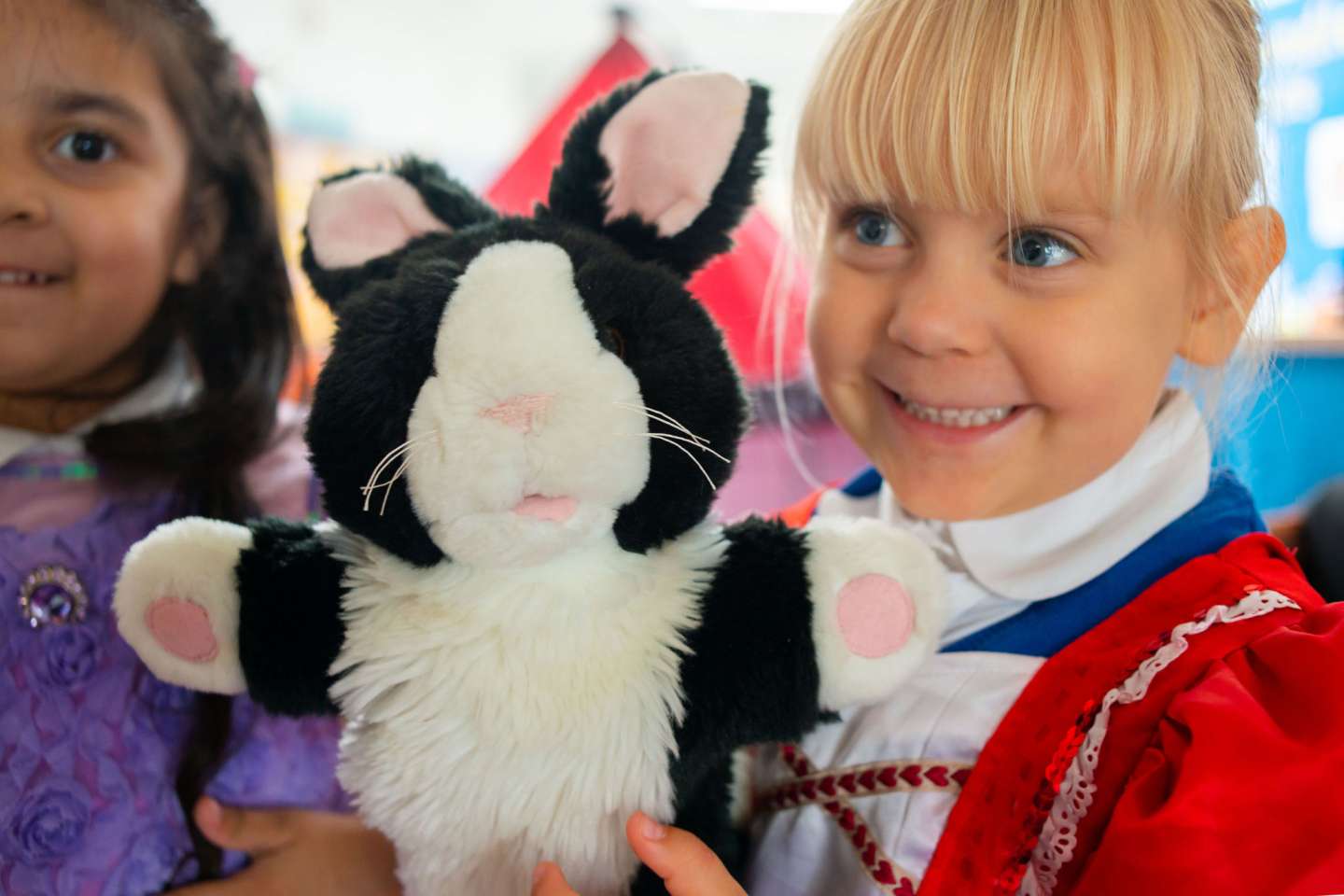Early Years Foundation Stage (EYFS)
At Dorothy Barley Infant School, the Early Years Foundation Stage curriculum is taught in Nursery and Reception. This exciting stage in a child’s educational journey prepares them for their future learning and successes.
Our Early Years experience is happy, active and exciting, securing solid foundations for the future. Our Early Years practitioners are passionate and dedicated to supporting every child’s development. We strongly believe in the importance of learning through play and hands-on experiences.
The Early Years Curriculum
Our bespoke Early Years Curriculum is carefully crafted to ensure solid foundations and a smooth transition into Key Stage One. There is a strong focus on the Prime Areas of Learning as specified in Development Matters, especially Communication and Language and Personal, Social and Emotional Development.
Our Early Years Foundation Stage is a place where children:
- Problem Solve
- Communicate
- Make Friends
- Explore
- Investigate
- Take Risks
- Express Themselves
We use a combination of child initiated and adult led practical learning, where children have time and space to explore their interests. Our highly interactive learning environment incorporates indoor and outdoor learning. This enables children to challenge themselves, collaborate with adults and peers, and practice learned skills.
Nursery
Our Nursery is led by a Class Teacher and Nursery Nurses. The children learn within small key worker groups, building up a strong relationship with a familiar adult. The adult led learning in Nursery consists of short, stimulating, and active sessions for our youngest children. The provision in our Nursery environment then allows the children to practise new knowledge and skills.
Our dedicated and experienced staff are skilled at interacting and communicating with the children, providing and supporting high quality learning opportunities.
Reception
In Reception, children spend time in larger class sized groups, as well as continuing to learn with adults in small groups. They learn all of the essential skills for their progression into Key Stage One whilst still spending a significant amount of time learning through play in our well resourced environments.

